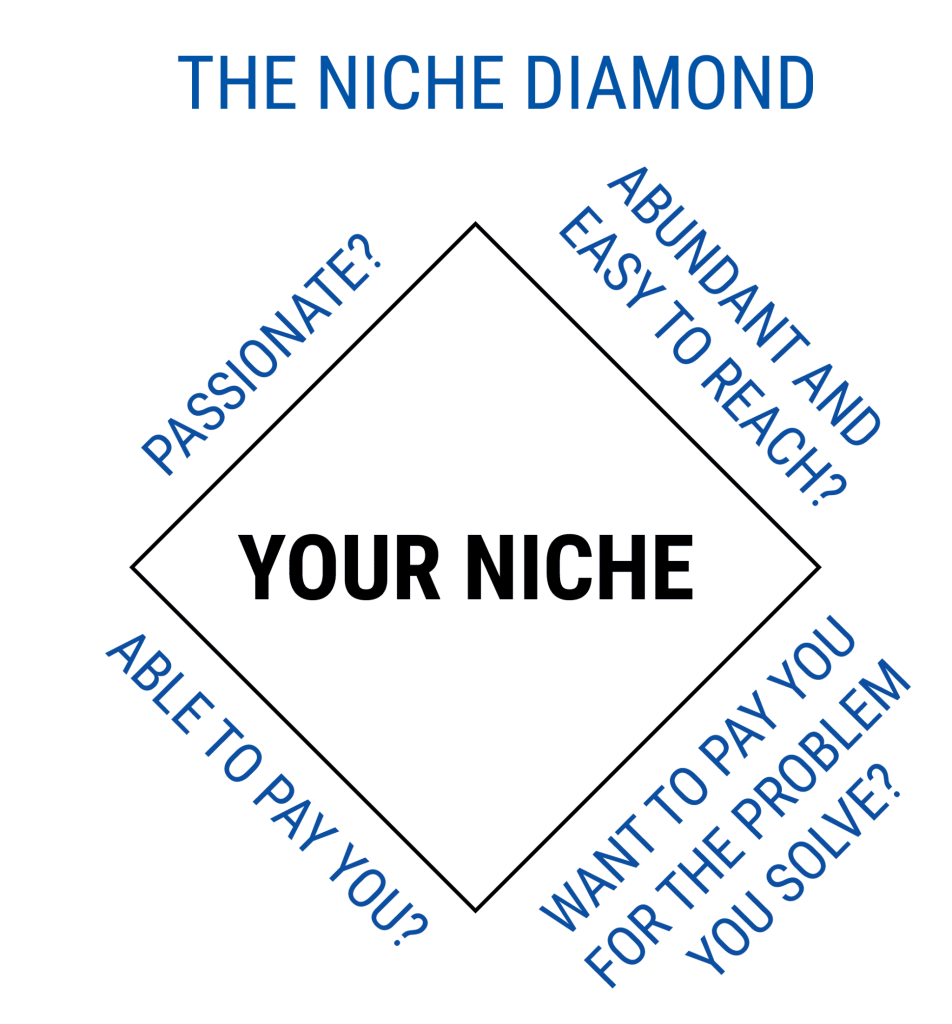Blog » Fundamentals of Coaching » 7 Harsh Realities About Starting a Successful Coaching Business (No One Talks About)
7 Harsh Realities About Starting a Successful Coaching Business (No One Talks About)
Heavy competition is making the coaching industry saturated.
Most coaches work 9-5 jobs since the money they make from their coaching business isn’t enough.
To build a successful coaching business, here are 7 things you NEED to know

- 1. Only 6% of coaches become successful, even less qualify as ‘top coaches’
- 2. “One size fits all” approach doesn’t work
- 3. Most coaches struggle to attract the right clients
- 4. Trying to coach ‘everyone’ is a mistake
- 5. An undefined marketing strategy can cost your business
- 6. Successful businesses don’t need certifications
- 7. Charging by the hour is a big NO
- Conclusion
1. Only 6% of coaches become successful, even less qualify as ‘top coaches’
In order to become a successful coach, you must have a steady stream of clients
All top coaches have this in common – a messaging which resonates with people. It is essential to attract clients.
Emotions always trump reason when making decisions.
And you can trigger these strong emotions by identifying the biggest pain points people have and showing them how those will be solved through your coaching.
This will result in them choosing you over anyone else.
And the only way you can identify these big pain points and paint a powerful picture of how it will look when they are addressed is by niching effectively.
You need to make sure your niche is solid and specific for your messaging to work.
Otherwise, it’s like trying to build a house on quicksand – everything crumbles the moment you take one step forward with your business!
Trying all those webinars? – gone. Spending money on ads? – vanished.
Even after you get a lead on a call with you, turning them into a paying client will be a tall ask.
Need an in depth understanding of niching?
Get the answers you seek by signing up for my highest rated paid course for free!
2. “One size fits all” approach doesn’t work
Retaining clients is tough. People want results quickly. Yet you need to resist the temptation to use the ‘one size fits all’ approach.
Techniques that work for other famous coaches, will not necessarily work for you.
What your clients are truly after is to see the tangible results that can be achieved from working with you.
A client seeking your services won’t be sold on the techniques or processes you use, but the outcomes you are offering.
They can’t relate with you saying that you are an NLP coach or an EFT coach (assuming they even know what these really mean).
Clients relate to the outcomes you will help them get.
A process-based package will tell you about the journey you will embark on, while an outcome-based package will tell you what you are gonna get at the end.
Define your coaching package based on outcomes.
Focus on what your clients will gain by investing their time; don’t be too concerned about the processes involved!
For example: Suppose you work with chiropractors. Your chiropractor coaching package would be a weekend boot camp where you coach them to increase profit by 20%, massively increase client retention, and decrease staff turnover.
Remember, your clients don’t pay you for your process, or for the time you spend with them, but for the dedicated outcome they expect to achieve.
3. Most coaches struggle to attract the right clients
You might be tempted to cast a broad net while seeking clients in order to boost your chances of success. If you’re not careful, this tactic might backfire because not every client is a suitable fit for your business.
When it comes to clients, the differences between high-ticket and low-ticket can be critical.
High ticket customers offer more than just financial payment.
They bring along a valuable mindset that recognizes their commitment, prompt payments, the willingness to put in work from their side, which in turn brings powerful results, success stories which can be used as testimonials and the potential for upsells.
On the other hand, lower ticket clients often lack such incentives leaving room for haggling over prices, not being committed enough and as a result, not putting in enough work themselves.
This means a lack of results, dissatisfaction and lack of success stories which you can use as testimonials.
And, what do you think is easier for reaching your financial goals through coaching – a few diligent clients or many troublesome clients?
Knowing which type of client best caters towards your business goals is where success lies!
4. Trying to coach ‘everyone’ is a mistake
It’s counter-productive to offer your services to anyone and everyone. You need to narrow down your clientele for your business to flourish.
The niche you choose needs to satisfy The Niche Diamond.

The Niche Diamond asks the 4 critical questions required to define a powerful niche.
Are You Passionate About Your Niche?
You need to be passionate about who you are serving, or else you will not know your clients well enough. When you are passionate about something, you go deep into it.
Only when you go deep into something, will you be able to get to the root of the problems and find solutions to them on a fundamental level.
Your passion will drive you to know about your clients’ needs, dreams, fears which are causing hindrance in achieving their goals. This will help you find better coaching solutions for your clients.
Is Your Niche Abundant And Easy To Reach?
As a coach, it is crucial to find a niche that can give you abundant clients and those clients congregate in a place which you are able to get access to easily.
you must be careful about choosing a niche that has very few people or is not easily accessible.
You cannot get in front of 100% of the people in your niche. And even the ones you get in front of, not all of them will be apt for you to get as clients. This means, your already small numbers are further diminished.
Can They Pay You?
It is very critical as a coach to figure out whether your clients have the financial capability to pay you or not.
For example, let’s say your niche is to help people get people back on their feet after filing for bankruptcy.
Your clients are already in a financially distressed state where they are struggling to make ends meet.
Do you think they will be able to pay you though you might deliver immense value to them?
So, always select a niche where clients can pay you for your coaching services.
Are You Solving A Problem Worth Paying For?
How much someone pays for a problem depends on how painful the problem is for them.
Make sure clients’ problems are painful enough for them that they are compelled to pay you well for helping them to solve it.
Follow all the steps of the niche diamond carefully. Do not do it hastily.
5. An undefined marketing strategy can cost your business
Despite putting your best foot forward, you can miss the mark and fail to convert your leads into clients.
A common way for coaches is to ask leads to book in a call with them. And most coaches end up trying to close these leads on this call and convince them to become paying clients.
These calls go anywhere from 60 to 90 minutes.
And after spending all that time with someone and the effort to try and close them, you end up realizing that
- this lead does not have the money to pay you
- or your coaching isn’t a good fit for them.
That’s a lot of wasted time and effort. Not to mention the frustration and loss of morale.
Enter two-call enrolment – designed to move clients towards buying from you without objections.
It takes away the pressure from your clients and pulls them in naturally towards your services.
First Call: Build Need For Your Coaching Services
In this first call, you connect with your client, understand their problems, establish that they are indeed a good fit and build the need for your coaching services.
Second Call: Closing The Deal
After establishing they are a good fit and building the need in the first call, the second call is where you establish relevance and pitch your coaching package the right way to your prospect.
This is the call where you close the deal and turn the prospect into a paying client.
The efficiency of this system makes finding the perfect people faster than ever before; it’ll feel like a mission accomplished every time!
6. Successful businesses don’t need certifications
Although certifications may provide you the necessary skills for the job, they won’t give you insight into the tactics you’ll need to employ in order to succeed as a coach.
Successful coaches don’t always have certifications, but ALWAYS have effective business strategies.
To successfully build and sustain a coaching business requires mentors, resources and knowledge beyond mere training – ingredients far harder to come by than expected!
Do you want a personalized step-by-step game plan to launch your coaching business in 2023?
And along with this, an in-depth audit of your coaching business – why you might be putting in a lot of hard work but are not seeing returns and it feels like you’ve hit a ceiling.
7. Charging by the hour is a big NO
Coaches frequently charge by the hour. And it’s among the biggest errors you could possibly commit.
If you analyze the most successful coaches out there, none of them charges by the hour.
Why?
If you are charging $100 for a session, your client is associating it with what they can buy for $100. A nice meal for their family or 5 months of Netflix etc.
And they are going to do that with every hour they spend with you, making it harder and harder to stay on with you.
Powerful results need time. And if you are not going to get enough time, you are not going to be able to deliver enough value.
This is going to make it tougher and tougher to retain clients.
And what if you want to raise your prices? How will they be able to justify paying $200 or $500 or more per hour? Now they are going to start comparing it with even more valuable things. It’s an uphill battle.
So, by charging by the hour you are essentially creating a ceiling for how much you can earn from your coaching.
How can you break this ceiling? Sign up for the course to find out!
Conclusion
Acquiring coaching skills is not enough to run a successful business.
Being a good coach is not the same as being able to start or run a coaching business.
Less than 24% of coaches are able to sustain themselves and focus on coaching full-time.
Only a coaching business (not just coaching) gives YOU the ultimate freedom – to coach from anywhere, live abundantly, touch many lives and feel rewarded and appreciated for what you do.
This distinction is an important one for you to sustain and achieve your life goals through coaching.
The best part? Our highest-rated course lays the necessary foundations for this for you. This is a paid course but you can register for FREE for a limited time here.







Your posts are always well researched.